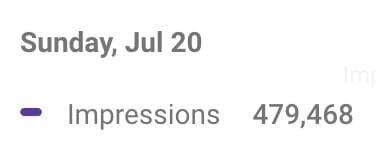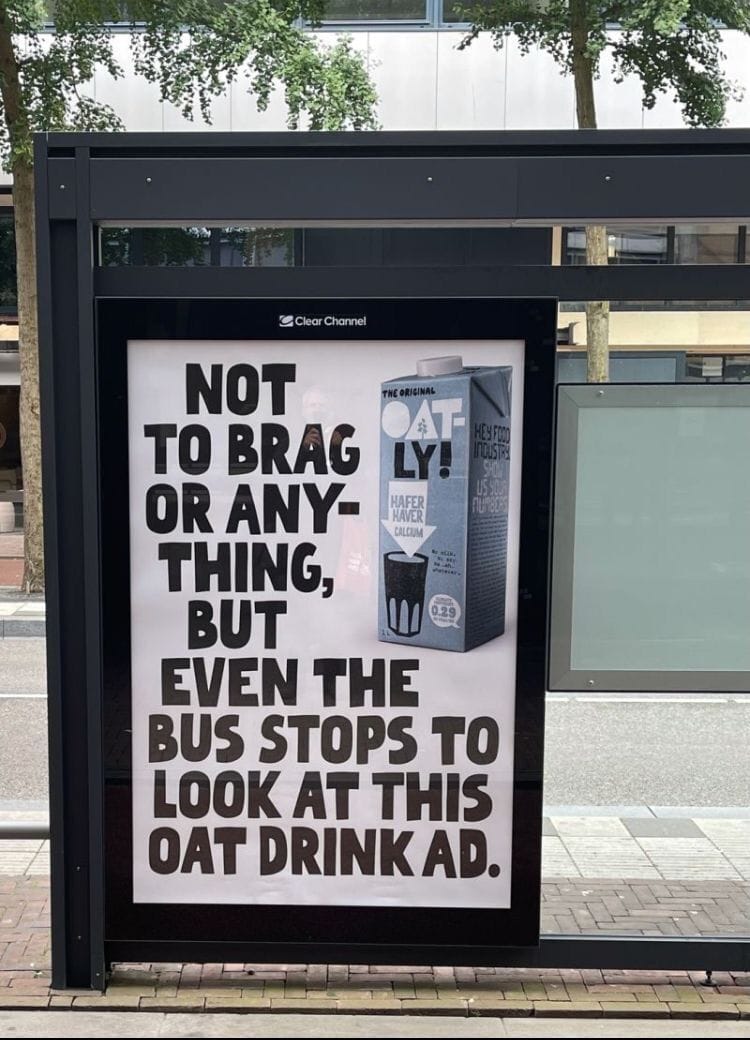- Marketer Milk
- Posts
- The Google founder's test
The Google founder's test
The recent Google June Core Algorithm update confirmed a prediction I made three years ago.
Well, three years and three days to be exact.
On July 19, 2022, I released an edition of this newsletter where I gave a couple of predictions on the future of marketing (it’s in the old ’Marketer’s Talk’ section).
One was about AI influencing our decision-making (look what happened with the launch of ChatGPT months later lol!), and the other was how “there will be a shift from content to personality.”
My exact words were: “Today, Gen Z doesn't care about your white paper or 3,000-word blog post (overgeneralizing here). They use TikTok, Reddit, or YouTube to find a solution or recommendation. In other words, they trust personalities over faceless content. So brands will have to learn how to adopt aesthetic values and charm to win the hearts of consumers.”
So what does this have to do with the recent Google update?
In the past two weeks alone, Marketer Milk’s SEO traffic has grown by 70%, and inbound leads have doubled. The same has happened for a SaaS client of mine (who I personally write a lot for), seeing a 106% increase in SEO traffic and a bump in user sign ups.
I started looking through different niches to see if I could find any patterns in what’s going on, and I had an aha moment.
Google is becoming YouTube.
On YouTube, the channels that gain the most loyal fanbases and views are the ones with a person at the center. It’s a person who cares about their audience and shows up to entertain, teach, or inspire them.
And if you look at YouTube, most of the time, these personal-branded channels do better than a corporate company channel.
I see this shift in Google (and all search engines, for that matter) as well.
Take Efficient App, for example, a software review site run by a couple named Alex and Andra. They rank #1 for the keyword “browsers.” Yes, I’m serious. They outrank huge brands like Wikipedia, Reddit, PCMag, and a bunch more. And they’re making over $800K a year with their blog.
Laura, a mom of six, runs Joy Food Sunshine, and she ranks #1 for “best chocolate chip cookies.” Her blog gets 2.8M visits/month.
Coop Mitchell, the creator of Garage Gym Reviews, ranks #1 for “best adjustable dumbbells” and gets 2M visitors/month on his blog.
All of these creators are doing something so many big corporate companies aren’t.
They’re writing from a place of lived experience. And they’re creating content in the form of both blogs that rank well and YouTube videos that can be embedded into their blog posts.
To anyone getting into SEO, this is how you will win, whether you’re a solo creator or a small startup team. You have to write about what you know, in a relatable way, and have original media in the form of custom graphics, images, or YouTube videos.
I tested this with one of my blog posts that was stuck in the #3 ranking spot.
I made a YouTube video about the same topic and embedded it into the post. I also went back and added a picture of myself (with context in the copy).
The result? #1 ranking and getting over 470K impressions/day just on that post.

My site has never had more SEO traffic than today. And I’ve never been more excited about the future of search.
Everyone is too focused on AI right now. And I get it.
But I predict the pendulum will swing back to humans, at least when it comes to content creation.
Right now, most marketers have a hard time with SEO because they think more about what Google can do for them, rather than what they can do for Google.
Think about it this way: if you were the founder of Google, how would you want people to create for your platform?
Would you want websites gaming it with content from people faking their expertise? From AI-generated slop that does nothing but fill up a page with unoriginal information that can already be found on the web?
If I were the founder of Google, and I knew millions of people would be using my service every day, I would be extremely careful with what I allow to show up for a given search query.
That’s why any time I want to target a new keyword, I do this “Google founder’s test.”
I look at the search results, and I ask myself "what would Larry Page or Sergey Brin be proud of to surface as the #1 spot for this given query?"
And if I think I have a shot at it, I go and create from that frame of mind.
Google will reward you more than ever if you think like this. There’s so much useless content right now that search engines and LLMs are CRAVING to surface the real stuff.
Now’s the time to beat the boring corporate brands, and I want to document it all for you. But first, if you even care about SEO, it would be awesome if you could select just one answer from the poll below. It would help me a lot in understanding what you want to hear from me.
What’s the most challenging part of SEO for you right now? |
It’s exciting times, and I’m going to reveal it all to you step-by-step as I learn and execute on things myself. Can’t wait to show you the next edition. ;)
With that, let's get into what we have in store this week (lots of good stuff):
Marketing news from the past week
Creating a high-converting pricing page
4 marketing psychology experiments
How to create content that actually drives sales
10 storytelling tips from 10 years at Disney
Ad in the wild
Website of the week
Cool marketing jobs
And much more
🗞 In the news
🚀 All things growth & product
💭 Guess the riddle
How many bricks does it take to complete a building made of bricks?
Answer is at the bottom of this email
💌 Email marketing, copywriting, & psychology
✍️ SEO & content marketing
🧠 Wild card
📣 Ad in the wild

Oatly bus stop ad campaign
💻 Website of the week
🏝 Cool marketing jobs
Okay, that's it for now 🧡. See you in the next edition!

What did you think of this newsletter? |
“We fear beginnings; we fear endings. We fear changing; we fear “staying stuck.” We fear success; we fear failure. We fear living; we fear dying.” — Susan Jeffers
Riddle answer: One, the last one.
🤳 Social media, branding, & productivity